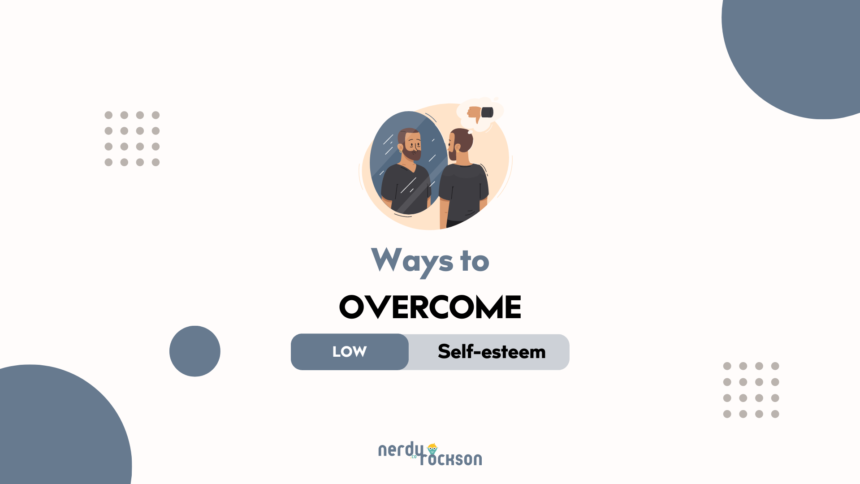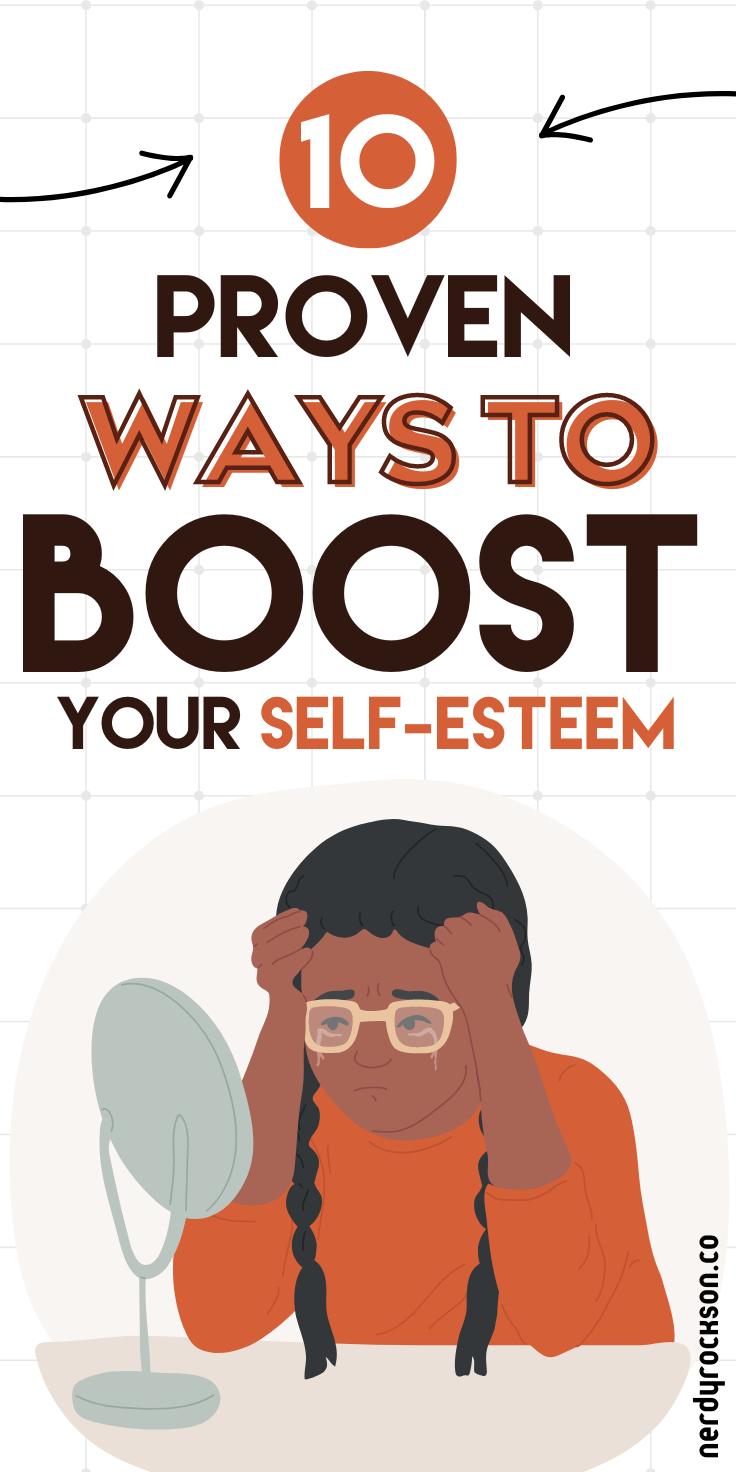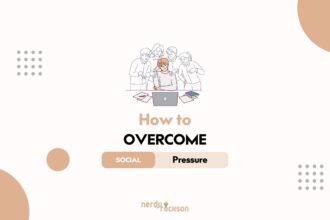In this age of hyperconnectivity and neverending social comparison, it’s crucial to understand how to overcome low self-esteem, a plight that afflicts a large portion of society.
Recent studies suggest that approximately 85% of the global population grapple with low self-esteem at some point in their lives. This article will guide you through ten practical strategies to wrestle down and overcome low self-esteem. No, it isn’t a magic remedy, but read on, and you may discover that the keys to self-confidence may be within your grasp after all.
Low self-esteem is like driving through life with your hand-break on.
Maxwell Maltz
We don’t intend to gloss over or diminish the struggle – it’s real, and it’s tough. The issue of low self-esteem can pervade all areas of life, affecting your relationships, career, and even physical health. But, if you’re here, reading this, it means you’re prepared to begin the journey to overcome low self-esteem.
As we step into the crux of the matter, appreciate that change takes time. It won’t happen overnight, but armed with knowledge and perseverance, you can transform your self-esteem.
What is Low Self-Esteem
Low self-esteem, as it sounds, revolves around having a low overall opinion of oneself, and undervaluing one’s skills, abilities, and worth. It is a perception layered with self-doubt, critical self-assessment, and a strong belief that you’re not good enough or less competent compared to others. This belief system, although subjective, can significantly affect your well-being and life quality.
Why is self-esteem important, you might ask? Well, self-esteem forms the cornerstone of one’s mental health, influencing thoughts, feelings, and actions. It’s a compass that steers our interactions with others and our responses to life’s challenges. A low sense of self-worth can lead to adverse psychological and social outcomes, including depression, anxiety, and impaired relationships.
As for what triggers low self-esteem, a variety of factors come into play. Life’s stresses and hardships – such as loss, failure, or rejection – can dent our self-image. Personal temperament and long-held beliefs about oneself, often shaped during childhood and reinforcing either positive or negative self-perceptions, can also contribute. Furthermore, constant comparison with others, especially in this digital age, can cause us to devalue ourselves, exacerbating low self-esteem.
Understanding the concept and importance of self-esteem, as well as the factors that influence it, is the first crucial step to overcoming low self-esteem. With this understanding, you can start to recognize and challenge the harmful thought patterns that keep you trapped in the cycle of low self-esteem.
How to Overcome Low Self-esteem
If you find yourself riding the stormy waves of low self-esteem, let me assure you that it’s certainly not a life sentence; quite conversely, it’s an opportunity for personal growth. Now, let’s dive into the 10 effective ways here to not just manage, but to overcome low self-esteem.
1. Positive Self-Talk
Are you aware of the dialogue that you often indulge in with yourself? The way we talk to ourselves, commonly known as self-talk, can influence our self-esteem significantly. Often, when engaged with our internal chatter, we lean towards negativity, but the good news is, this pattern can be reversed.
Switching to positive self-talk can enhance your confidence, boost your mood, and help you overcome low self-esteem. Instead of being your worst critic, mold yourself into your biggest fan. When your internal voice uplifts you and supports your endeavors, you’ll start to notice changes. You will begin to feel good about yourself, and gradually, your self-esteem will improve.
Practicing affirmations is one of the most effective ways to develop positive self-talk. Constructive, positive phrases such as “I choose joy,” or “I am capable and strong,” when repeated regularly, can reprogram our thinking pattern. Try repeating these affirmations every day, preferably in front of the mirror, and watch how they bring about a powerful shift in your self-perception.
Aim to catch yourself engaged with negative self-talk and consciously change one word at a time. For example, if you find yourself saying “I can’t do this,” you might switch it to, “This is challenging for me, but I can learn.” Each positive adjustment you make contributes to a more robust self-image and lifts your self-esteem even higher.
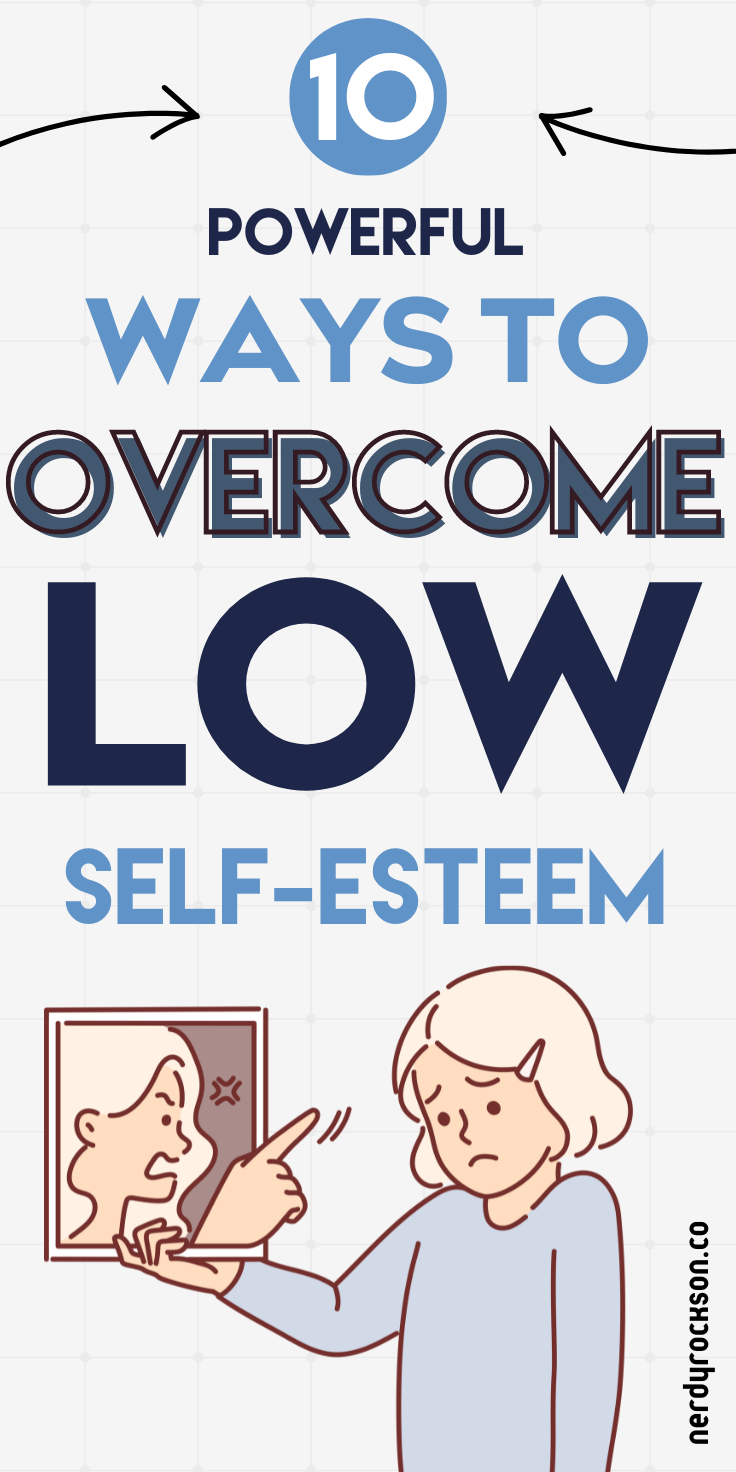
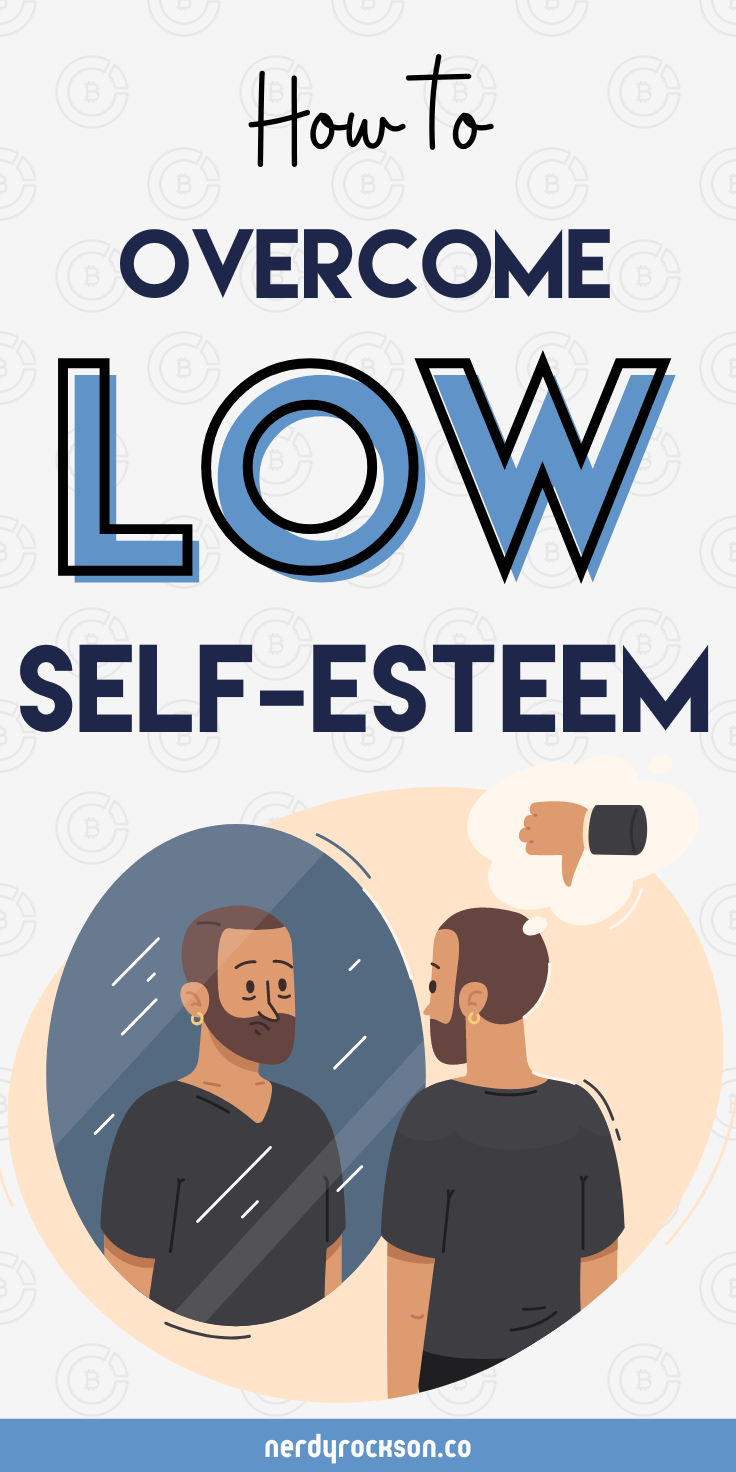
2. Self-Compassion
You may wonder, “How can being kind to myself boost my self-esteem?” The connection is profound. Treating yourself with the same care and consideration you’d extend to others creates a nurturing inner environment that bolsters self-confidence. How harshly would you judge a friend who errs? Probably not as sternly as you’d judge yourself. It’s time to bring that leniency inward and cultivate self-compassion.
So, how do you practice self-compassion? It’s all about mindful awareness, understanding, and acceptance. When self-doubting thoughts creep in, take notice of them, acknowledge their presence without judgment, and let them go. Be patient with yourself, understand that everyone makes mistakes, and that it’s okay to not be perfect. It’s about being a friend to yourself, especially during challenging times.
The benefits this self-care confers are plenty; from decreased anxiety and depression to greater resilience and emotional wellbeing. By replacing critical self-talk with nurturing messages, you enable self-growth and encourage positive self-perception. Remember, the conversation you have with yourself impacts your self-esteem. It’s time to be supportive, understanding, and forgiving inside your head, just as you would be to a friend in need. This is one of the most powerful tools you possess to overcome low self-esteem.
3. Setting Realistic Goals
Have you ever thought about how your self-esteem can be significantly boosted by setting and achieving realistic goals? Here’s why – envisioning, planning for, and ultimately achieving a goal gives you a sense of accomplishment and control over your life. Witnessing direct evidence of your competence can indeed bolster your belief in your abilities, leading to improved self-esteem. But the key here is ‘realistic’. Let’s delve into this aspect more deeply.
The objective isn’t about high-flying ambitions that set you up for failure. Rather, it’s about setting targets that stretch you, yet are within your capability to achieve. When you set overly ambitious goals, you’re more likely to fall short, leading to feelings of disappointment and reinforcing negative self-beliefs. Conversely, measurable, achievability and relevant (SMART) goals can offer small, regular affirmations of your abilities and worth.
So, how do you go about setting realistic goals? Here are some tips for you:
- Think SMART: Make your goals Specific, Measurable, Achievable, Relevant, and Time-bound. For instance, rather than deciding you want to ‘get fit’, focus on achievable specifics like ‘Exercise for 30 minutes each day’.
- Break down larger goals: Larger objectives can often feel daunting and unachievable. By breaking them down into smaller, manageable tasks, you’ll not only feel more accomplished as you tick off each task, but you’ll also be making steady progress toward your end goal.
- Celebrate Success: It is essential to acknowledge your victories, even the small ones. Celebrating gives you a sense of achievement and reinforces the positivity that boosts self-esteem.
- Track your progress: Regularly monitoring your progress keeps you committed to your goal and provides a continuous source of motivation that can boost your self-esteem.
- Stay Flexible: Life isn’t always predictable, so remaining adaptable in your goal-setting helps prevent feelings of disappointment if circumstances arise that require a shift in approach.
In summary, setting and achieving realistic goals is a positive lens through which you can view and reaffirm your abilities, thereby aiding you in overcoming low self-esteem. So, why not start now?
4. Healthy Lifestyle
You see, physical health is a fundamental catalyst for nurturing mental health and self-esteem. Whether you realize it or not, your body and mind are intrinsically entwined. The state of your physical health can significantly influence your mental and emotional well-being, including your self-esteem.
Consider the act of exercising. Regular physical activity releases endorphins – our natural mood lifters. They instigate feelings of happiness and euphoria and reduce anxiety. Miraculously, when you exercise, your brain is telling you that you’re succeeding. By reaching your exercise goals, however small they may be, you are essentially proving to yourself your capability of achieving set goals, aren’t you? And that, my friend, boosts self-esteem.
Moving on to nutrition. A balanced diet fuels your body with the necessary nutrients for it to function optimally. You might be asking, “But what does this have to do with self-esteem?” Well, when your body feels good physically, that positive feeling permeates into your mental state. You’re more likely to be productive, you feel more capable, and this, in turn, enhances your self-esteem. As they say, you truly are what you eat.
Additionally, never underestimate the power of a good night’s sleep. Adequate rest rejuvenates your brain and body, allowing you to tackle the day ahead with enthusiasm and confidence. Feeling refreshed and alert contributes to a stronger self-image, thereby raising your self-esteem.
Remember, a healthy lifestyle isn’t a choice, it’s a necessity. And it’s a lot more impactful than you might think. You’re not just improving your physical health; you’re building a stronger, more resilient, and remarkably more confident version of yourself. And would there be a better trophy to hold high?
5. Building Resilience
Resilience, the ability to bounce back from adversity, is a key trait that can significantly contribute towards overcoming low self-esteem. It enables you to manage setbacks and challenges head-on, and eventually, to grow stronger. But how can you build resilience?
Start by focusing on what you can control in your life. If things go astray, don’t let yourself dwell on the negatives. Instead, consider what steps you can take to improve the situation. Equally important, give yourself a break. Everyone makes mistakes and it’s those mistakes that serve as stepping stones towards growth. So, don’t fear failure, embrace it!
Remember, resilience means accepting that setbacks are part of life, not evidence of personal inadequacy. In turn, you’ll find your self-esteem rising as you acknowledge your ability to cope, not just survive, but thrive amidst adversity.
6. Seeking Professional Help
Sometimes when you try to overcome low self-esteem on your own, the challenge might seem too great. It can become essential to seek out professional assistance. But when exactly should one venture that route? Well, if your low self-esteem becomes persistent, causing ongoing negative impacts on your professional, personal, or social life, that’s when a therapist or a counselor can sweep in to assist.
Easing the overwhelming burden, these professionals utilize their training and expertise to guide you through the process of overcoming low self-esteem. Through techniques such as cognitive behavioral therapy (CBT), they can help you identify and challenge negative thought patterns. They can also assist you in developing coping strategies, building resilience, and fostering self-acceptance.
To find these professionals, one can use resources such as the Psych Central guide to finding mental health support. The key thing here is not hesitating in seeking help. Remember, it’s a sign of strength, not weakness, to reach out when you need assistance in your journey to overcome low self-esteem.
7. Mindfulness and Meditation
One of the more profound ways to overcome low self-esteem is through practicing mindfulness and meditation. These processes instill a calm, non-judgemental awareness of your thoughts and feelings, enabling you to observe your self-talk without getting caught up in it. From this place of observation, you can introduce more positive self-talk and gradually enhance your self-esteem.
Mindfulness and meditation, moreover, encourage self-compassion, helping you to foster gentler perceptions of, and attitudes towards, your own perceived flaws or failures. By relieving self-inflicted pressures, they can actively contribute to a more balanced and kinder view of the self, promoting self-acceptance and thus raising self-esteem.
To incorporate mindfulness and meditation into your daily routine, start with just a few minutes each day. Find a quiet space, take a comfortable seat, and focus on your breath, allowing thoughts to pass without judgment. Alternatively, consider guided meditations or mindfulness apps to support your practice. With consistency, you’ll discover an enhanced sense of self-esteem and well-being.
8. Building Positive Relationships
In your quest to overcome low self-esteem, the choice of who you surround yourself with can have a profound impact. Can you imagine how uplifting it would be to be surrounded by individuals who uplift your spirits, encourage your goals, and appreciate your worth? This is the power of positive relationships.
Positive relationships emanate from a healthy relationship with yourself, first and foremost. When you value yourself, you naturally attract others who reflect that same level of respect and positivity. These are the individuals who become your pillars of strength during tough times, mirrors reflecting your intrinsic worth and cheerleaders applauding your victories, no matter how small. It’s a clear case of like-attracting-like: positivity attracts positivity.
Healthy relationships serve as a buffer against the daily stresses of life, shielding your self-esteem from the onslaught of negativity. They act as a mirror, reflecting your true value and regularly reminding you of your strengths and achievements. When you surround yourself with this kind of positive energy, it’s far easier for you to maintain a healthy self-perception, and in turn, overcome low self-esteem.
It’s worth noting, however, that the journey to building positive relationships begins with you. Show up as your authentic self, be kind to others, and make an active effort to foster relationships that make you feel good about yourself. Positivity breeds positivity, and in a similar vein, self-love attracts love from others. So, these strong, healthy relationships will not only be supportive but will help to maintain and continually boost your self-esteem.
9. Self-Acceptance
You see, self-acceptance plays an incredibly vital role in your journey to overcome low self-esteem. It asks you to embrace who you truly are – ‘warts and all’, as the saying goes, which gives you a solid foundation to build your self-esteem. It’s about recognizing it’s okay to be imperfect, as everyone is.
But, how do you get to a place of self-acceptance? Well, it starts by acknowledging and accepting both your strengths and weaknesses. Make a list of them, if you find that helpful. Then, practice reframing negative thoughts about yourself into positive ones. Instead of focusing on your shortcomings, shine the light on your capabilities. You’ll be surprised how powerful this simple shift in perspective can be.
Furthermore, don’t forget to surround yourself with positivity. People who uplift you and appreciate you can also help you accept yourself justly.
Up for it?
10. Continuous Learning and Personal Growth
Our final discussion in the quest to overcome low self-esteem centers around continuous learning and personal growth. Have you ever stopped to think about the interplay between these two concepts and your self-esteem? When you conscientiously embark on a journey of continuous learning, you are doing more than just acquiring new knowledge—it’s about fostering a healthier self-image and higher self-esteem. Why? Because every new skill you learn, every nugget of knowledge grasped, is a reminder that you are capable, adaptable, and constantly evolving. Personal growth, in turn, is the reward for this lifelong learning journey.
So, how can you foster a growth mindset, you may ask? It’s all about seeing challenges as opportunities, not obstacles. Embrace failures and setbacks as learning experiences—not as a reflection of your worth. Remember, every step forward, no matter how small, is still progress. Celebrate your small victories, and notice how your confidence flourishes. And as your skillset expands and your wisdom deepens, so does your self-esteem.
You see, overcoming low self-esteem is not an overnight achievement; it’s about making consistent, long-term efforts, leading toward self-growth and self-improvement. So are you ready to embark on this journey of continuous learning and personal growth to boost your self-esteem? Remember, every day offers a fresh opportunity to learn, grow, and improve.
Conclusion
In conclusion, you have powerful tools at your disposal to overcome low self-esteem. Be it through positive self-talk, cultivating self-compassion, setting achievable goals, maintaining a healthy lifestyle, practicing resilience, seeking professional help, mastering mindfulness, building uplifting relationships, promoting self-acceptance, or continuing to learn and grow; each strategy plays a vital part in enhancing your self-esteem.
Always remember that overcoming self-esteem demands patience and perseverance. Swings in self-perception are normal, but what counts is the readiness to work toward improvement. Negative emotions and experiences are learning opportunities, not defining factors. And remember, no victory is too small to celebrate on the path to boosting your confidence and self-appreciation.
So, improving self-esteem isn’t just about feeling better about yourself; it’s about empowering yourself to reach your full potential. Ready to take the first step?
